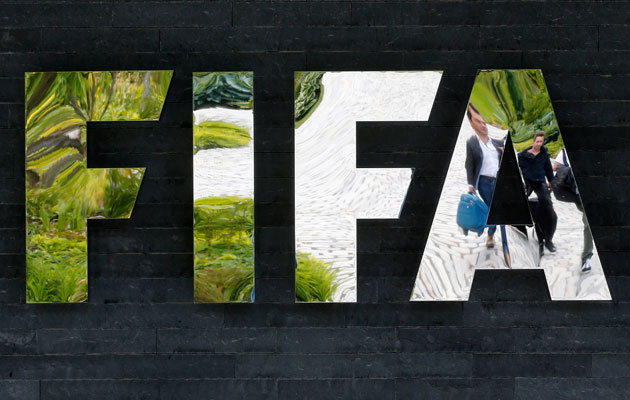Doubters of Sepp Blatter’s FIFA reform plans should have been delighted by Francois Carrard’s weekend observation that football in America “is an ethnic sport for school girls.”
Critics of the scandal-battered world federation have insisted that only someone with no connection to, and little knowledge of, the game would be qualified to rebuild the way it is run. Those words in ignorance of soccer’s progress in the United States suggests the veteran Swiss lawyer may fit the bill perfectly.
Carrard dropped the aside in a wide-ranging interview about his chairing of the reform committee, the amended role of sponsor representatives, what Mark Pieth and Sepp Blatter had got wrong and got right and in which he also cast a quizzical eye over the media grandstanding of the United States justice authorities. None of this, he insisted, detracted from his personal and professional focus.
“I’m a man who wants to see international sports federation that are well managed,” said the former director-general of the International Olympic Committee who saw the Olympic movement through the dark days of the Salt Lake City corruption scandal more than a decade ago.
He was not happy at being handed a ready-made FIFA committee comprising nominees from the six regional confederations which Carrard identified as bearing significant responsibility for the ongoing crisis.
Carrard, answering questions from Le Matin Dimanche, said: “When I was offered the position, the members had been appointed. I did not have a say. So I asked to nominate a fully independent advisory board of my own of five members, no more, because we have to work fast.
“I will choose them . . . they will be personalities of experience, wisdom, international stature, who have had to cope with crises but who do not necessarily come from the sport.”
The FIFA committee will meet first on Wednesday of next week in Bern which Carrard chose as a venue to distance its work both geographically and symbolically from FIFA’s Zurich capital; his own advisory board will not meet before the end of October.
Carrard also said the FIFA committee will not include representatives of the major World Cup sponsors as had been suggested. However two members of his own board would be chosen after discussions with sponsors such as Coca-Cola, Visa, McDonald’s etc.
The committee members lack any semblance of independence but Carrard conceded the value of using people with knowledge of FIFA’s structure and who understood the need for change. This, he thought, was where the original independent governance committee, launched in 2011 by governance guru Pieth, went wrong.
Carrard said: “His proposals were very good and we could take some of them forward. But the process lacked internal relevance. When you are sitting on a cloud, you can propose whatever you like but there is no guarantee it will be accepted. You need to understand the realpolitik.”
For Carrard the kernel of what was rotten in the state of FIFA focused on the confederations’ monopoly of the executive committee.
He said: “A fundamental element of FIFA’s problems is the confederations’ anachronistic position. They are not members of FIFA but are decisions-makers within the organisation . . . without responsibility. This is a fundamental cultural and structural problem.”
Issues such as term and age limits and remuneration transparency, as well as a restructuring of the exco, are expected to feature among Carrard’s proposals to the congress which will elect a new president next February 26.
Carrard took a balanced view of Blatter’s role and responsibility for the crisis, acknowledging what the Swiss 79-year-old had achieved but also where he had gone wrong in far outstaying his welcome.
“There is something unfair in the way Blatter has been treated,” said Carrard. “He certainly made mistakes but he also accomplished positive things. Unfortunately, it’s always like that when somebody stays too long, negative perceptions take over. The man is being treated unfairly.”
Carrard had seen a vast array of paperwork from the US case against FIFA-linked officials and “there is not a word against Blatter. Nothing.”
While on the issue of ‘FIFAgate’ Carrard cast a sceptical eye over the high-profile presentation of the case by Attorney-General Loretta Lynch and senior directors of the FBI and IRS.
He said: “Since soccer is not a true American sports, I struggle to understand – and I’m not the only one – why the Justice Department was so excited to the point that the Attorney-General should hold a news conference in New York. Crimes of this type occur every day in the United States.”







